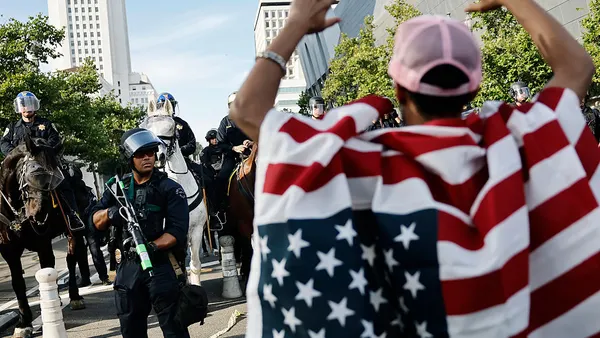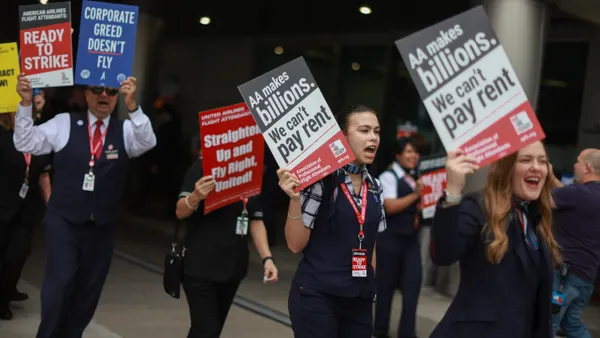After a rise in violence against Asian, Asian American and Pacific Islander individuals in the wake of the pandemic, nearly half of AAPI professionals responding to a recent survey said it’s very or extremely important to them that their companies address that ongoing violence.
But only one in four said they feel their company is “very vocal” regarding violence against the community, according to Coqual’s report, released Jan. 19.
The study was published just days before a mass shooting in Monterey Park, California — a city with a large Asian American community that had been gathering to celebrate the Lunar New Year — as well as another shooting in Half Moon Bay, California, involving at least some victims who were Chinese American. While the motive of the first case is yet to be determined and officials have said the second is likely a case of workplace violence, they served as a stark example of AAPI individuals experiencing violence, both at work and in the community.
"The current climate of anti-Asian hate has forced the community to fear for their psychological and physical safety in the world and the workplace," Lanaya Irvin, Coqual chief executive officer, said in a statement.
Nearly two-thirds of respondents said the ongoing violence has negatively affected their mental health; 62% said the violence has made them feel unsafe commuting; and half said it has affected their ability to focus at work.
The report also pointed out ongoing microaggressions that AAPI workers face in the workplace — particularly “the perpetual foreigner” and “overvalidation.” The former includes co-workers commenting on English language skills, for example, while the latter involves co-workers assuming an AAPI person is good at math or smarter than other people, the report said.
AAPI professionals are also the least likely of any racial group surveyed to have upper level role models at their companies, Coqual said; they are also least likely to have strong networks and least likely to have a sponsor.
To address inequities, Coqual provided a three-step framework that employers can use to bolster AAPI inclusion at work.
- First, employers should audit the state of their organization and find where systemic inequities may exist. Companies should avoid treating AAPI professionals as a monolith, as well.
- Second, employers should share those audit results and educate leaders on what structural racism looks like, as well as open lines for communication.
- And third, companies should collaborate with workers to build solutions and hold each other accountable for taking needed action.
For example, Coqual’s study noted, Pacific Islander workers may experience invisibility, exclusion and erasure more often than Asian and Asian American professionals and employers will need to act appropriately.













